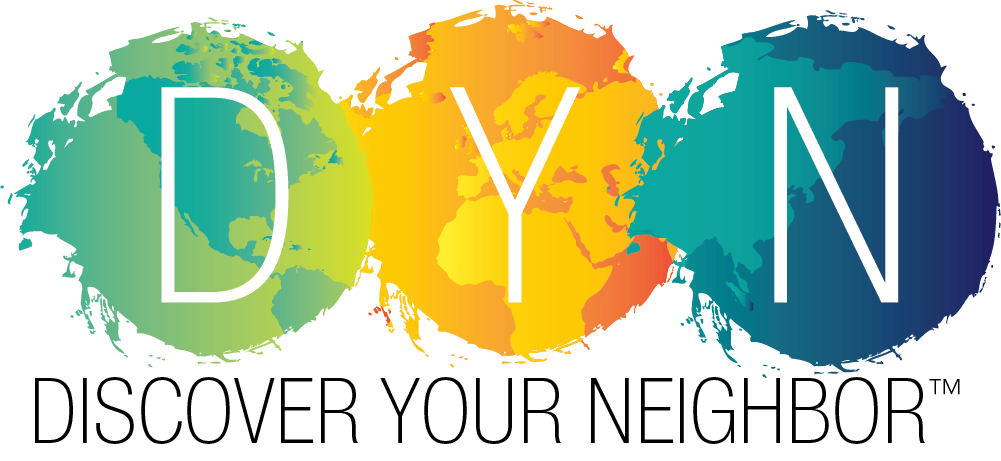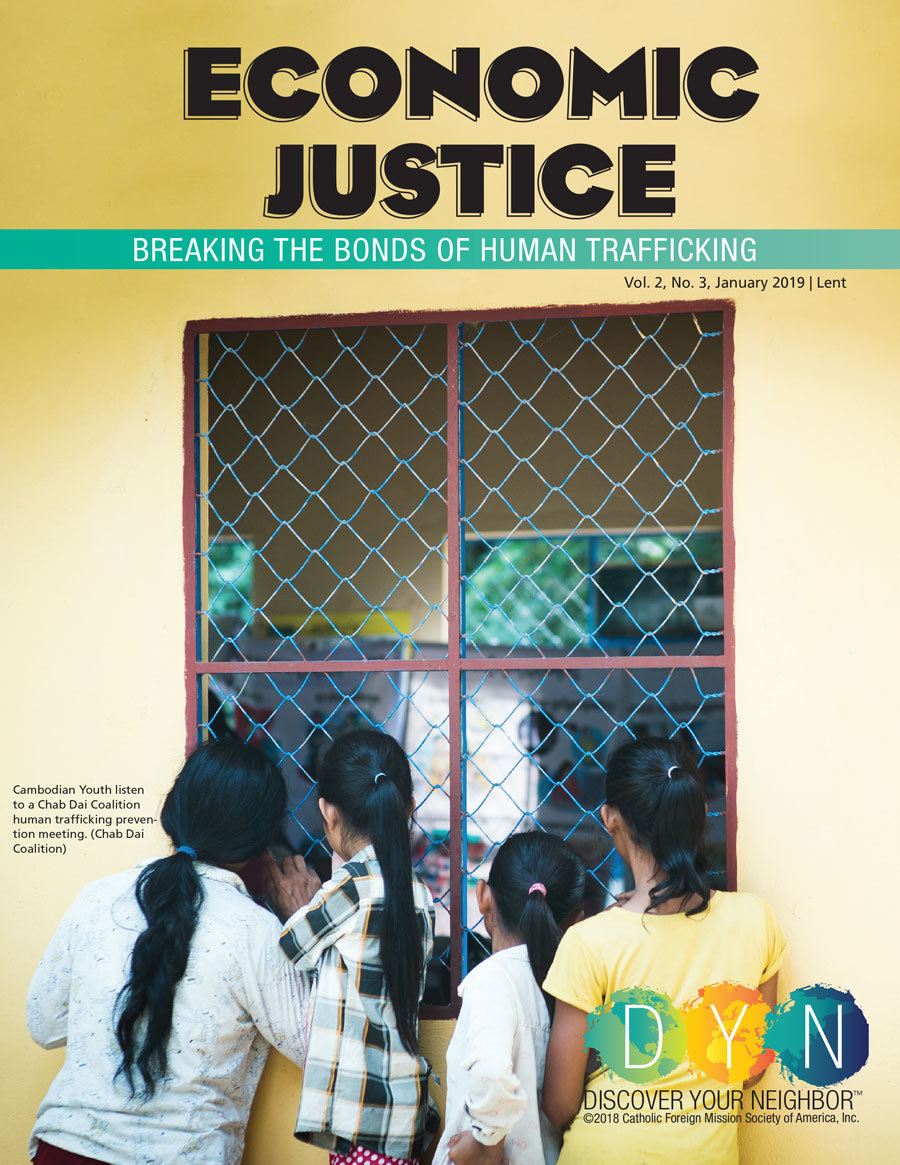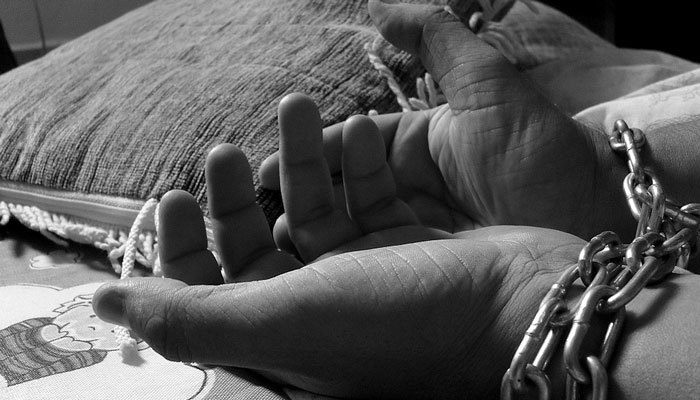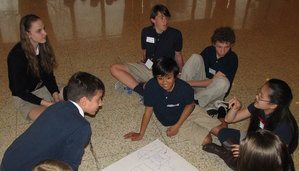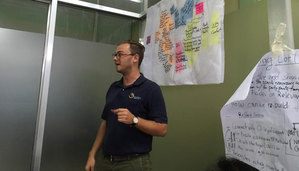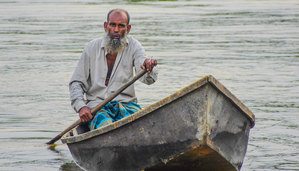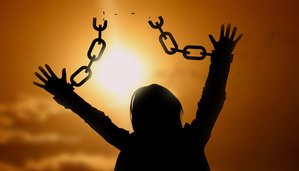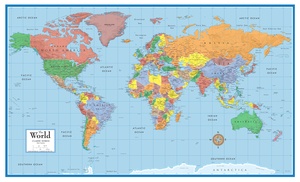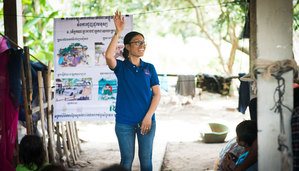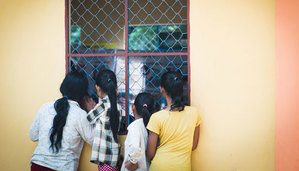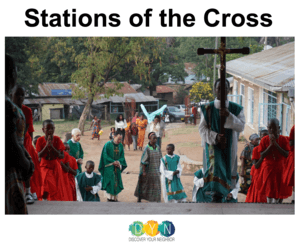Access your Middle School or K-5 Educator’s Guide for your classroom by filling out the form below. You will then be directed to a page where you can download a high quality PDF file to print out or share digitally.
Download the:
In this issue students will
ANALYZE the situation of homelessness in their community in the context of global economic justice,
APPLY scripture, Catholic Social Teaching, and their call to live as Missionary Disciples in today’s world, then
DESIGN a plan to respond and
ENGAGE their peers, families and community in this mission of mercy.
Jesus, remember me.
You knew struggle during your time in the desert.
When my days are long and I cry out your name,
Jesus, remember me.
You knew anguish in the Garden of Gethsemane.
When I am faced with trouble, guide me to do your will.
Jesus, remember me.
You knew the despair of the cross.
When my hope is gone,
Jesus, remember me.
You knew what it was like to be abandoned by your friends.
When I am filled with fear,
Jesus, remember me.
When you come into your kingdom,
Jesus, remember me.
Amen.
READ the Faith Perspective and Neighbor Focus stories, as well as the quote in What Does the Church Say?
REFLECT: What was one thing you heard from these stories that was important to you? Divide the group into pairs and EXPLAIN: We are going to do interviews. Each person will get a chance to be the interviewer and to be interviewed. When you are being interviewed, you will play the role of Lita from the Neighbor Focus story, imagining how you think she would respond. Begin by each person WRITING at least ve questions to be used when you are interviewing Lita. Remember, a good interview gets people to share about their feelings, including their fears.
ROLE PLAY THE INTERVIEWS in front of the class using your written questions. As you listen to Lita, interviewers may ask follow-up questions based on what they heard. IN A LARGE GROUP, ASK: What role did listening play in this activity? Give examples of interviewers who listened well and followed up with questions. Both James and Pope Francis emphasized the importance of listening to the survivors of human trafficking. What did you learn in this listening exercise that helps you understand better why listening to others is so important?
Lita carefully traces daisies on the cake she is preparing for her client in Phnom Penh, Cambodia. She is grateful for the work and the skills she has learned as a pastry chef. But her life has not always been one of cakes and daisies.
Lita was very young when her father died. Her family found it difficult to make enough money to make ends meet. When she was only 10 years old, her stepmother began selling her to men for sex. Lita’s life has included many years of being used by other people to make them money or give them power.
When she was a teenager, she was helped by a private organization to escape the control of her stepmother. Soon after, she was connected to another group called Chab Dai Coalition, where Maryknoll Lay Missioner James Havey works.
In the work that James does with Lita and other survivors, he explains they “work for economic justice with an emphasis on the elimination of poverty and the empowerment of impoverished people.”
Besides helping people out of poverty, James says, empowering them means allowing them to be themselves. “We need to take care not to silence each other, especially those who have been abused. Survivors in particular need someone to listen to them because it is they who have the best knowledge of the services they and other survivors need.”
Maryknoll missioners in Cambodia and Myanmar are seeing the return of fishermen who have been rescued from slave-like working conditions on Thai fishing boats. Recruited by false promises of a living wage, these vulnerable people incur crippling debts and suffer terrible abuse by their employers, some for years.
Susan Gunn from the Maryknoll Office for Global Concerns reports, “An estimated 45 million people worldwide are victims of trafficking, which means that they are forced, coerced, abducted or tricked into backbreaking, low-paying jobs or even forced to work as prostitutes. Trafficking occurs at all stages of the seafood supply chain, from getting the fish from the sea to our table, from the people who catch the fish to those who process and ship it for export.
Along with purchasers who want cheap seafood, lawless conditions at sea enable this modern slavery to flourish. “As the largest importer of fish in the world, the United States is in a unique position to demand information on what’s involved in the production of goods we use every day.”
Maryknoll Office for Global Concerns and the USCCB are part of the Coalition of Catholic Organizations Against Human Trafficking.This coalition is based in the belief that, “Each person is made in the image of God, is loved immeasurably by God, and has inherent worth… Modern-day slavery—where men, women and children are bought and sold like merchandise—inherently rejects this principle, showing absolute contempt for human beings.
For this reason, eliminating human trafficking and empowering survivors has been a historic concern of the Catholic Church.”
READ ONE OF THE FOLLOWING:
Old Testament: Exodus 6: 2-13
Life of Jesus: John 15: 12-17
Christian Living: 1 Corinthians 12: 12-14
REFLECT: What do these passages say about God’s love for us? How is God calling us to treat one another? How is this relevant to your life? How is this love not being shown by the traffickers in the stories? What in this scripture challenges you the most?
IDENTIFY AS A LARGE GROUP ways these passages ask us to treat human beings in our world. Brainstorm together how these passages can be understood in relationship to human trafficking.
“In the eyes of God, each human person, whether girl, boy, woman or man is a free person.” – Pope Francis
Pope Francis called trafficking a “crime against humanity.” He then urged all people, especially the young, to meet with victims of human trafficking in order to learn about how to fight this scourge of modern-day slavery.
Youth are in “a privileged place to encounter the survivors of human trafficking,” the pope said. “Go to an association close to home, meet them, listen to them.” Change starts with encounter, so “don’t be afraid to encounter them. Open your hearts, let them enter, be ready to change.”
